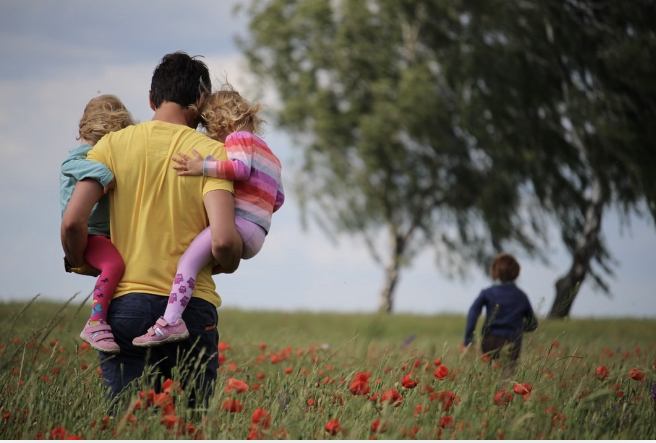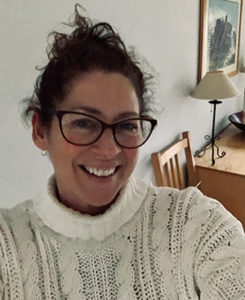Moving swiftly and efficiently through the morning waking, dressing, feeding my child and attending to his needs, I suddenly stop in my tracks as I see his big, brown eyes looking directly at me. My precious child has been by my side since the light of day yet, I haven’t ‘seen’ him. I make a shift in my mindset and smile at his magical innocence, move closer and envelope warm, welcoming child-ness into my arms. I am now practicing conscious parenting discipline. I am aware of him and we both luxuriate in the connection. This is bliss.
The real life scenario above is an example I share of first being distracted then switching gears to parent consciously. Parenting consciously is choosing the difference between looking and seeing, hearing and listening, accepting what the world presents and knowing what matters to you. It is being aware then choosing to respond versus react.
Parenting itself is the ultimate multi-tasking experience as it demands mentally, emotionally, physically and even spiritually navigating the way through each day. Whether parenting one or multiple children, the healthy challenge of blazing a new trail is present as each child comes with their own unique personality traits and characteristics. Parenting is an inarguably healthy challenge. The value of parenting consciously has the advantage of parenting with awareness, and steering the journey equipped with a sharper state of mind.
My youngest child was beginning kindergarten and she was excited. I would miss the long, uninterrupted afternoons we had together to fill however we pleased. Whether it was a visit to the park, walking the dog, or just being at home each doing our own thing comfortably aware of each other’s presence. A few weeks into the new kindergarten schedule, her teacher revealed to me that most of the children in her class were attending the morning K-Care program at the school. Her friends were coming into the afternoon kindergarten class with art projects and fun stories sharing what they had done that morning. Her teacher suggested I enroll my daughter as well, so she wouldn’t miss out.
As I got to know some parents of the children in her kindergarten class, they too were surprised I hadn’t enrolled my daughter in K-Care. They encouraged it and listed the opportunities it gave them to meet up with each other and hike or go for coffee. I stayed open-minded as I learned more about the program but began to feel real social pressure to enroll her in K-Care. It would have been easy to listen to the suggestion from her kindergarten teacher and follow the choice the other parents had made but I consciously decided to take some time to carefully consider the idea. What was best for my daughter? What was best for our family? I spoke to my daughter and asked if she knew about the K-Care class and if she would like to spend the mornings there with her friends before going to afternoon kindergarten. She told me she had seen some leaf art pictures they had made and would have liked to make one too. No other impressions seemed to be important to her. She also expressed, “Mommy, I would miss you.” Needless to say, I made the conscious decision not to enroll her and we spent the next morning happily at home together making leaf art.
You know your child best. Having the confidence in this statement enables you to parent consciously and make the best choices for the health and well being of your individual child. It matters not what decisions other parents are making for their children. They may be parenting consciously as well but making different choices than yours.
Conscious parenting is being aware and mentally focused on situations involving your child. It is not being swayed nor coerced by others but parenting with thoughtful introspection and consideration. It may also include gaining knowledge or doing some research and then executing choices with confidence. Practicing conscious parenting when your child is young will assist you as your child grows. The differences in parenting choices become broader as your child and their peers move into junior and senior high school.
When my children were young, I would often forget how important it was to let them help me. It was just easier to do it myself. Life is busy and my default plan when trying to do the many things that needed to be done was to do them as quickly and efficiently as possible. That may have been great if I was running a business or managing an assembly line but, I was raising children. Instead, make the conscious decision to encourage their curiosity by taking the time to teach your child what you are doing.
When I was a parent in those long ago days, I don’t think I could have been reminded often enough that the time with a young child is fleeting. The days are long with little ones and it is difficult to see the future with any real sense of time. I am here to attest these are precious days. When parents make the mind shift of awareness and live in the present moment, they are parenting consciously and will be forever grateful they did.
Ask your four-year-old to set the table. Take the few minutes to teach the placement of the plates, cups, napkins and utensils. They will beam with pride as you acknowledge, “You set the table! Thank you for your help.” As you prepare dinner, consciously assign age-appropriate tasks for your child to assist you. Ask your child to wash their hands then gently toss the salad. As the family sits down to dinner, mention their contribution. They will feel so happy. Go outside together to work in the garden. There are so many tasks your child can to do outside! Pause in your busyness and consciously invite your child to help. You will be teaching them they are helping and doing their part to contribute to the household chores. They will know they are an important part of the family. This too is conscious parenting.
Parenting consciously is a process and may be a new way of thinking. Be gentle with yourself as you work on your awareness of opportunities to consciously parent your child. Parents are often hard on themselves freely criticizing their own attempts and efforts. It is easy to see the gap between the desire to do things right on behalf of their child and their parenting actions or behaviors. I too had to work on the negative self-talk in my head and replace it with a more gentle, empathetic voice. Don’t give up on your efforts to parent consciously. Give it a break, then try again. It is a process and as long as your desire is there, you are on the right path.


